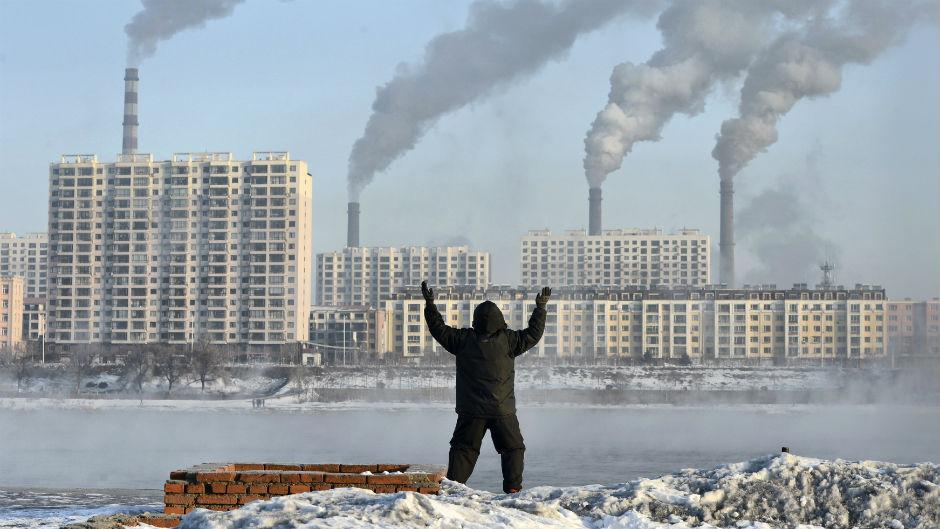Do therapists have a duty to confront climate change denial?
Psychoanalysis is, traditionally, a highly individualistic endeavor. The therapeutic method, based on a psychological perspective developed by Sigmund Freud, works to uncover a patient’s unconscious, and is conventionally focused on unravelling subconscious self-sabotage. But philosopher and psychoanalyst Donna Orange, an adjunct professor at New York University, believes that her colleagues have an obligation to confront not just the demons of a patient’s subconscious, but the horrors of climate change.


Psychoanalysis is, traditionally, a highly individualistic endeavor. The therapeutic method, based on a psychological perspective developed by Sigmund Freud, works to uncover a patient’s unconscious, and is conventionally focused on unravelling subconscious self-sabotage. But philosopher and psychoanalyst Donna Orange, an adjunct professor at New York University, believes that her colleagues have an obligation to confront not just the demons of a patient’s subconscious, but the horrors of climate change.
Orange, who gave a talk on climate justice and psychotherapeutics at this year’s American Psychoanalytic Association conference in February, believes that psychoanalysis should address not just the motivations of human action, but also its consequences. She points to historical examples where psychoanalysts have been so focused on inward processes, they’ve failed to consider the outside world: For example, at a British Psychoanalytic Society meeting during the German Blitz on London in World War II, psychoanalysts debated the origins of hatred and aggression, until one member drew their attention to the all-too-real consequences, noting, “I should like to point out that there is an air raid going on.”
Psychoanalysts should be wary of repeating these oblivious attitudes, warns Orange. “Are we, too, so absorbed in our theories…that we fail to notice that human-caused planetary warming threatens to destroy the world within which we practice our beloved profession?” she asked in her presentation.
Instead, psychoanalysts should create an “environmental unconscious:” Orange believes that psychoanalysts, together with other therapists, can draw attention to the threats posed by climate change, and then challenge the mental defenses that prevent people from responding to climate change.
There are various psychoanalytical theories as to why we might be psychologically resistant to addressing climate change, notes Orange. Social scientist Renee Lertzman, who works on the psychology of environmental communications, believes that people are suffering from “environmental melancholia.” Freud believed that melancholia reflected a sense of loss that is not fully conscious and so cannot be fully mourned, and Lertzman argues this state describes our response to climate change. That many are aware of the effects of climate change but do little about it suggests dissociation, the Freudian concept explaining how we bury traumatic memories in the unconscious, and regression, Freud’s explanation for why people show childlike rather than adult behavior as a defense mechanism for coping with stress, argues Orange.
In her presentation, Orange psychoanalyzed our collective reluctance to address climate change in her presentation, arguing that we have been morally numbed by historical injustices, namely colonialism and slavery, and are blocked from acting on climate by our failure to reckon with the past. “What we do not know, really profoundly and extensively and personally know, Freud taught us, we are bound to repeat,” Orange said. “Together with the colonialist past we all share, this history of slavery and its ongoing effects, of which we rarely speak, blinds us to the misery that our carbon-and-methane spewing lifestyles are creating in the global south. We are repeating.”
The same psychoanalytic methods used to help individuals reckon with their surroundings and past can be used on our collective mindset. “Just as psychoanalytic treatment of shame begins to restore to the mistreated a sense of inclusion in the human community, so can a psychoanalytic sensibility, sensitive to the corrosive and isolating effects of shame, begin to link us all with each other. We can begin to understand that our well-being depends on the well-being of others,” says Orange.
Climate change may sound like a political, rather than a psychological or psychoanalytical subject. But, as this is a man-made crisis, it inevitably relates to the human psyches that psychoanalysts analyze. Most people go to therapy to address their own personal angst, rather than global crises. But, perhaps psychoanalysis could prompt patients to reconsider their focus on therapy as a tool to address their own needs. After all, an unconscious mind perfectly cured by psychoanalysis is of little use without a habitable planet.